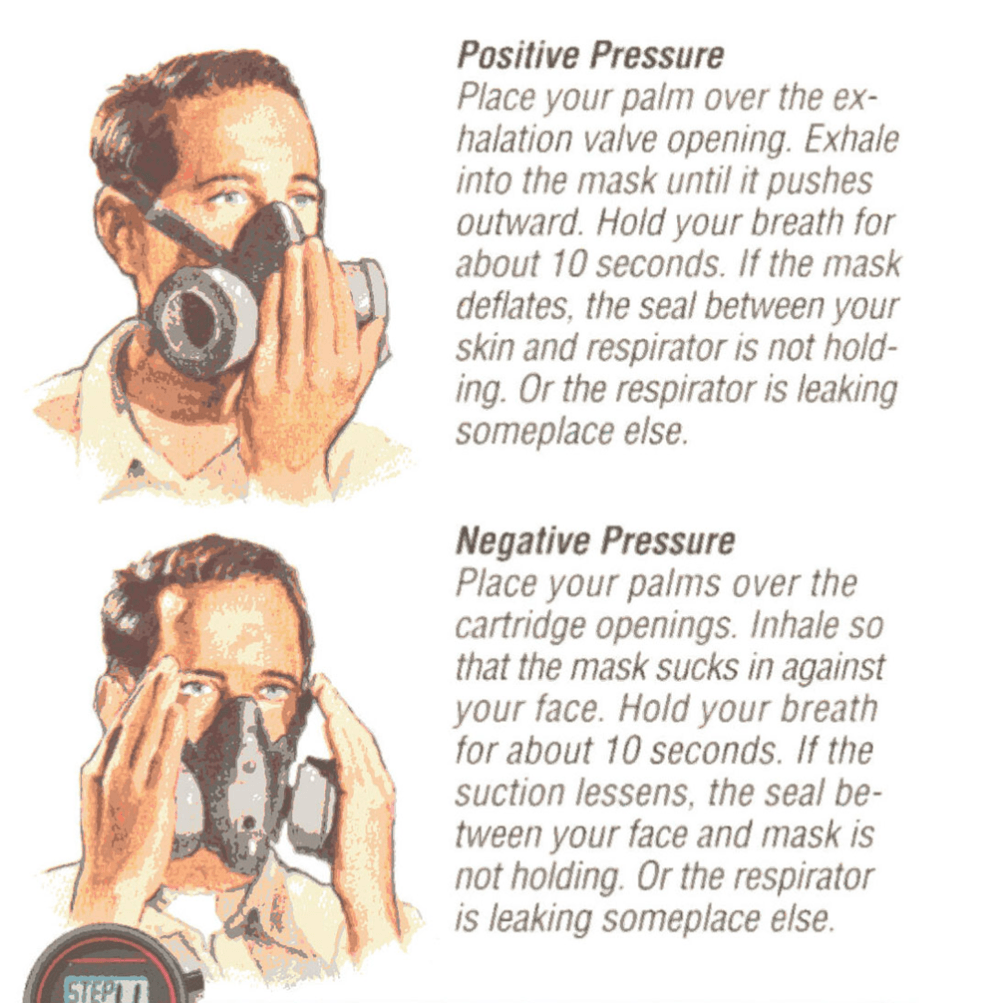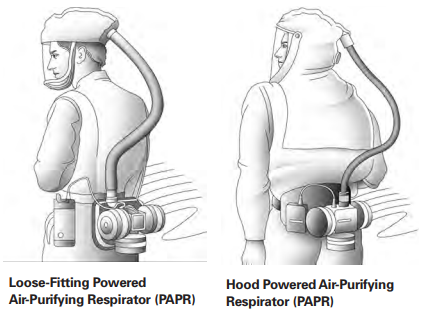What is the quickest and most direct avenue of entry for Toxic materials to enter the body?
What is through the lungs?

The voluntary use of this type of respirator does not require a respirator program.
An N95
When are respirators used?
When effective engineering controls are not feasible.
Name two reasons to leave the respirator required area and remove the respirator.
•Difficulty breathing
•Dizziness
•Nausea
•Headaches
•Change in mood
•Weakness
•Any other abnormal experience
What date did OSHA first open its doors for business?
Include month, day, and year.
What are the three basic classifications of respiratory hazards?
1) oxygen-deficient air
2) particulate contaminants
3) gas and vapor contaminants
Who is responsible for establishing and maintaining the written respiratory program?
The employer
What are the two required seal checks?

What should you do in an emergency situation?
Remove yourself immediately to a well-ventilated area and remove your respirator.
•Check the valves
•Replace the cartridges
•Perform a user seal check
Which federal agency tests and approves respirators to general construction, quality assurance, and performance requirements for use in U.S. workplaces
NIOSH
Name two items the written program must include.
•Selecting proper respirators
•Medical evaluations
•Annual fit tests
•Training
•Use in foreseeable emergency situations
•Cleaning, disinfecting, storing, inspecting, repairing, discarding and maintaining
•Regularly evaluating the effectiveness of the program
When should respirators be inspected?
•Respirators should be inspected prior to each use
•Respirators should be inspected after extended storage (6 months since the cartridge has been opened)
Inspect all parts and pieces of the respirator for defects.
A pass/fail test method that uses your sense of taste or smell, or your reaction to an irritant in order to detect leakage into the respirator facepiece.
What is qualitative fit testing?
Which respirator has a filter, cartridge, or canister that removes specific air contaminants by passing ambient air through?
An air-purifying respirator
How often do respirator training and fit testing need to occur?
Annually
What are two conditions in which an APR cannot be worn?
•If the oxygen concentration is less than 19.5%
•If hazardous contaminants exceed the IDLH
What were the first respirators made of in 23 A.D.?
Loose animal bladder skins
The history of respiratory protection traces back as far as Pliny the Elder (23-79 AD).
Name two signs or symptoms that may prevent the use of a respirator.
•Seizures
•Claustrophobia
•Asthma
•Emphysema
•Pneumonia
•Collapsed Lung
•Lung Cancer
•Broken Ribs
•Chest Injuries/Surgeries
•Any other lung problems
•Heart or Circulation problems
•Anxiety
Which respirator does not require a fit test?
Loose fitted PAPR

Name two reasons when filters need to be changed out.
•Cartridges for gases and vapors need to be changed when the life of the cartridge is used.
•Cartridges for Respirable Dust (HEPA) need to be changed when they become visibly dirty as the manufacturer recommends.
•Pre-filters for APR’s or Dust Masks need to be changed when resistance is felt in breathing.
•Consult the manufacturer’s recommendations for specific frequencies.
•You can taste or smell the contaminant
•You have respiratory tract irritation
•It becomes more difficult to breath
When was the first respirator approved for industrial work? (Month
January 15, 1920
The USBM certified the first respirator, the Gibbs breathing apparatus which was originally designed for mine work.
